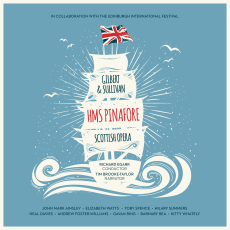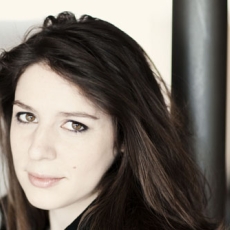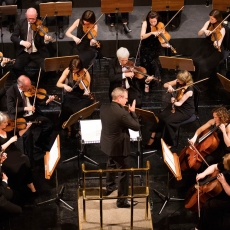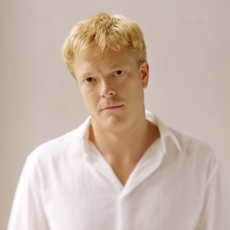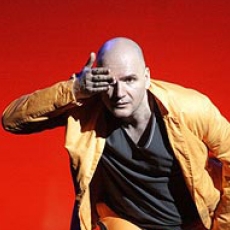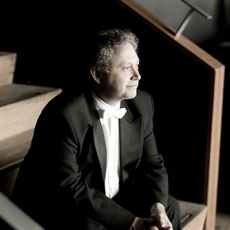Scottish Opera - HMS Pinafore - The Herald Scotland
Conductor Richard Egarr: It's hip to be historically informed
"THERE is this general idea that early music should be squeaky clean and that stuff only got dirty in the 19th century. Like, hello?!" Richard Egarr - harpsichordist, conductor - is rehearsing a gripe I suspect he's been through before. His voice is gaining decibels in the polite hotel cafe: he sounds incredulous, exasperated, all riled up about authentic performance practice. "As if people only started doing rubato in the 19th century! Truth is, everything started getting more tame at the beginning of the 20th century. The further back you go, the more dirt you find. Life wasn't exactly cleaner in the 17th century, was it? Nah," he sits back, shaking his head. "Definitely muckier."
If anyone is breathing proof that early music doesn't have to be squeaky clean to be gripping and persuasive, that proof is Egarr. "High octane, muscular, a rush of blood to the head," I wrote about his solo Bach recital at the 2015 Edinburgh International Festival. "There was an edge of slight chaos in the air. Repeats in the music seemed to be dropped at random; ends of movements were often slap-dash or downright abrupt." And yet, or so, the recital stands as one of last year's festival highlights - a blast of very real, raw and mucky emotion. "Moments of calm between the storm arrived unannounced," I enthused in my Herald review the next day. "And when they did arrive, they were suddenly stark and searching."
That extreme and visceral impact corresponds with Egarr's belief that baroque music should set the senses on fire. "You only have to read a tiny bit about what music meant to people in the 17th century," he says, "about the way people reacted, to know this was supposed to be seriously emotional stuff. There are so many examples of people bursting into tears. Music was a passionate thing. Why should we soften the edges now?"
Egarr is at the heart of today's early music world - he is director of the Academy of Ancient Music, faculty of the prestigious Historical Performance department at New York's Juilliard School, keyboard soloist, international guest conductor and associate artist of the Scottish Chamber Orchestra - yet he still has the air of a volatile trouble-maker. He works with symphony orchestras as well as period-instrument ensembles and is incensed by what he describes as the "bullshit" status quo in Historically Informed Performance: the movement non-ironically self-acronymed as HIP.
Blame that status quo on the 1980s and 1990s, he says, when two major evils arose. The first was that the recording industry spurred on a kind of baroque-pitched arms race between the period instrument ensembles. "Who would be the first to record the Schumann symphonies, who could be first to get to Wagner. Quite honestly, there wasn't masses of thought going into it. We went from Mozart to Wagner in the space of 10 or 15 years, and I don't think we did it very well."
The other evil according to Egarr was an ethos of ‘let the music speak for itself and don't over-interpret' - an attitude he considers to be "patently nonsense. Listen to historical recordings of people playing this repertoire and you'll hear plenty of interpretation. But those recordings were actively ignored in the ‘80s and ‘90s because they didn't fit with the HIP aesthetic of the time, which was about playing in a post-modern detached way and making everything sound like Stravinsky." He rolls his eyes. "Thank god we've moved on since then."
The more he listens and looks and reads, he says, the more permission he finds to unleash personal reactions to the music. There would be an irony there - that the ultimate outcome of decades of rigorous study is to rip up the rule book and run with gut response - except that no rule book has been ripped up. "It's definitely not a free-for-all," he clarifies, looking mildly horrified. "You have to be prepared to back up every decision. Personal reactions need discipline, otherwise they are totally meaningless."
Like most of today's top early music specialists, Egarr considers the true spirit of HIP to be an attitude of inquisitiveness and investigation rather than any specifics of tunings or instruments or ornamentation. And that's why he is happy to work with modern orchestras as well as period ones - "because the attitude can transfer. I never give a list of don'ts. I hear stories about baroque conductors greeting a symphony orchestra with the words, ‘good morning ladies and gentlemen: no vibrato please', which is an instant turn-off! Way more important is to talk to musicians about colour and sound and pulse. If you've only got four hours to prepare the complete Bach orchestral suites with Seattle Symphony" - an experience he had last year - "you can't get bogged down with minutia. You have to convey a bigger picture, a sort of..." he searches for the word. "A sort of feel."
Egarr is keen to point out that he's not just a period guy: that he enjoys "doing good music, whatever it is. I love the Magnificats and Passions and Messiahs, but I'd also love to do Bruckner and Wagner." Then there's his new recording of Gilbert and Sullivan's HMS Pinafore, made last summer with Scottish Opera and out next month on Linn Records. "That might seem pretty left-field to lots of people, but to me it feels entirely natural. The idea came up when we were recording St John Passion with the AAM, and after one of the sessions I was drinking large glasses of wine with the producer Phil Hobbs and we were saying what a great cast it would be for Pinafore..."
Egarr approached that project like any other: with his historical hat on. "There are Pinafore recordings from 1907, so I listened to those then got the strings happily sliding around like it was 1907. It's a colour inherent in the music so we shouldn't clean it up. It might not be to modern taste, but you know what? I don't care!"
